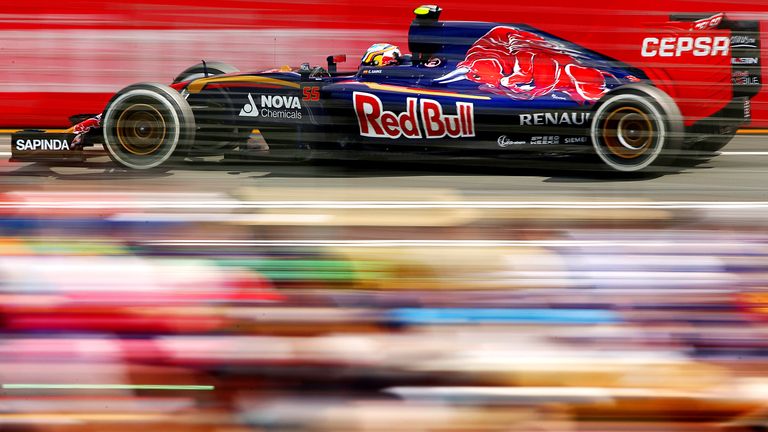Max Mosley: Force manufacturers to supply engines at low cost
Former FIA president says 6m Euro would be a fair price as research is relevant for manufacturers' road cars; Mosley feels teams should be forced to supply anyone who requests a supply
Tuesday 24 November 2015 09:34, UK
Former FIA president Max Mosley believes F1's engine manufacturers should be forced to supply engines at a low cost as any loss is offset by advertising and research for road cars.
The FIA recently revealed that plans to introduce a cost cap, reputedly 12m Euro, on customer engines supplies was vetoed by Ferrari - a move Mosley has labelled "small-minded".
"It is a decision that is defending a commercial principle," Maurizio Arrivabene, Ferrari's team principal, explained. "A public company has research and development costs that somehow you have to recover. I don't find any commercial entity all around the world that is giving their product out to the market for free - or at cost."
But according to Mosley, the sport's engine manufacturers are amply compensated through other means.
"What I would say is these companies are in it to promote their image, their brand and promoting your brand is expensive," Mosley told Sky Sports F1.
"So I would be inclined to pick a much lower figure, something in the 5 or 6m Euro bracket, depending on what the teams can afford. But I think it would have to be done in that bracket and then say to them that's what you'll supply for."
Mercedes boss Toto Wolff has claimed his team already lose a substantial amount of money on their supplies to Williams, Force India and Lotus and that would be exacerbated by lowering the cost price.
However, Mosley feels the research being done on the F1 engines is beneficial to Mercedes as a road car manufacturer and therefore the cost should be written off as R&D.
"I wasn't involved in the decision-making process, but I would have thought it was fairly straightforward to sit the manufacturers down and say 'you are in this to promote your brands'," he added.
"These engines are completely road relevant, the research you are doing is absolutely focussed on the road and will be very useful so that is part of your main business. Formula 1 is part of your advertising and promotion so you must expect to spend a bit of money. You are very welcome to come in, but these magic engines have got to be supplied to the entire field if anybody wants them and at a very reasonable price'.
"Now I think there would have been a bit or argy-bargy, but in the end they would have agreed, because the difference in what they spend between doing it that way and doing it as they have been doing would be relatively insignificant and would become completely insignificant if you combine it with a rule that says the engine has to last a very long time, if not the whole season."
F1 rules currently limit the teams to four penalty-free engines each season, but Mosley feels further savings could be made by limiting that further.
"The other way that a lot of money could be saved is if you simply increase the life of them. Those engines can run for thousands of kilometres provided you adjust them in a certain way," he said.
"They'd give slightly less power, but they'd last all season. So you turn around to the manufacturer and say it has to be five or six million and when the inevitable howl and anguish came, I would say to them 'well we'll also bring in a rule that will make the engines last longer', because those engines could effectively do all season so the cost shouldn't be that much."
Mosley hit out at Ferrari for using their veto to block an engine cost cap, believing it showed "small-mindedness".
"You've got to look at the bigger picture if you are Ferrari. Formula 1 that doesn't work isn't good for Ferrari because it is a huge marketing tool for them," he said.
"So I think they should have been a little bit more generous and, of course, the veto anyway is a sort of thing from history. It came from the fact that Ferrari sat between us, the British teams, and the FIA like the fulcrum of the balance and if they moved a little bit one way or a little bit the other way, could have an influence out of proportion to the size of the team and that gradually grew into a situation where they had an effective veto all the way through.
"But I think it showed a certain small-mindedness and if I were in the position of Ferrari I'd be inclined to say 'I need Formula 1 to succeed and therefore I will do everything I can to see that it will succeed and if I don't win it is my engineers' fault as they have the resources and they should get on with it'."
Watch the Abu Dhabi GP live on Sky Sports F1. Race-show coverage begins at 11:30am on Sunday with lights out at 1pm. Watch all three days of the Abu Dhabi GP for £10.99 on NOW TV. No contract.




